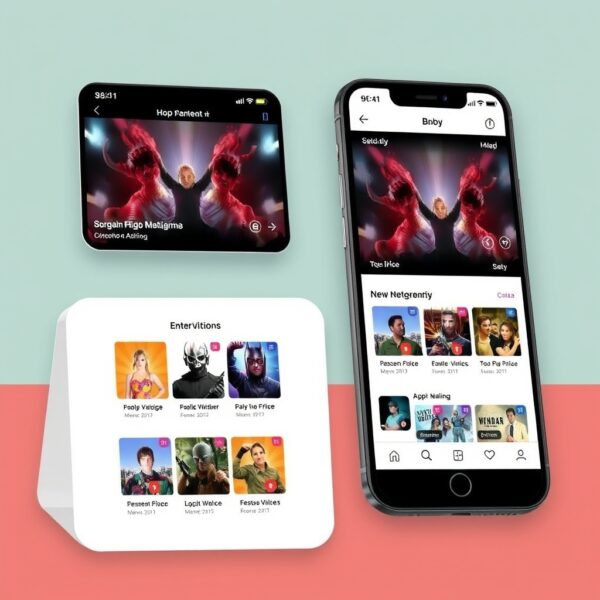
As the travel industry continues to evolve, so too do the expectations of travelers when it comes to their online experience. A well-designed travel website is essential for attracting and retaining customers, particularly in a competitive market. Whether you are working with a travel web design company or a travel portal development company understanding the essential features for 2024 will help you create a platform that meets the diverse needs of modern travelers. Here are the key features every travel website should include.
1. User-Friendly Navigation
One of the most critical elements of any travel website is intuitive navigation. Users should be able to find what they’re looking for without frustration. Clear menus, categorized sections (such as flights, hotels, and activities), and a robust search function are vital. Ensure that navigation is consistent across all devices, especially since many users will be accessing the site from mobile devices.
2. Mobile Optimization
In 2024, mobile optimization is no longer optional; it’s a necessity. Travelers increasingly use smartphones to research and book trips, so your website must provide a seamless mobile experience. A travel portal development company can help ensure that your website is fully responsive, allowing it to adapt to various screen sizes without sacrificing usability.
3. Advanced Search and Filter Options
Travelers have specific preferences when searching for flights, accommodations, or activities. Implementing advanced search and filter options allows users to narrow down their choices based on criteria such as price, location, amenities, and user ratings. This feature not only enhances user experience but also increases the likelihood of conversions.
4. Secure Booking System
Security is paramount when it comes to online bookings. In 2024, a robust and secure booking system is essential for gaining user trust. Implement SSL certificates, secure payment gateways, and transparent privacy policies. Your travel web design company should also include features that assure users their data is protected, such as trust badges and user reviews.
5. Personalized User Experience
Personalization is a growing trend in web design. By utilizing data analytics, travel websites can offer customized recommendations based on users’ previous searches and bookings. Features like saved preferences, personalized travel itineraries, and tailored offers can significantly enhance user engagement and satisfaction.
6. Integrated Reviews and Ratings
User-generated content, such as reviews and ratings, is invaluable for building trust. Integrating a section for travelers to leave reviews can help prospective customers make informed decisions. Displaying real user experiences can also differentiate your website from competitors. Ensure that the review process is straightforward and visible, enhancing credibility.
7. Rich Content and Visuals
High-quality images and engaging content are vital for attracting and retaining users. Use visually appealing images, videos, and infographics that showcase destinations and experiences. In 2024, travel websites should also include immersive content, such as 360-degree views of hotels or virtual tours of attractions, to provide an engaging experience.
8. Seamless Social Media Integration
Social media plays a crucial role in the travel decision-making process. Integrating social sharing buttons allows users to easily share their favorite deals or experiences with friends and family. Additionally, showcasing social media feeds on your website can provide fresh content and inspire potential travelers with real experiences.
9. Multi-Language and Currency Support
With the globalization of travel, offering multi-language and currency options can expand your audience. A travel portal development company can help you implement these features, making it easier for international travelers to navigate your site and complete bookings. This inclusivity can enhance user experience and increase your website’s reach.
10. Live Chat and Customer Support
In an age where immediate assistance is expected, integrating live chat support can significantly improve user experience. Travelers often have questions while planning their trips, and having access to real-time help can be a game-changer. Additionally, offering multiple support channels—like email and phone support—ensures that users can get help in the way they prefer.
11. Detailed Itineraries and Travel Guides
Providing users with detailed itineraries and travel guides adds significant value. Including suggested itineraries for various destinations, along with tips and local insights, can enhance the planning experience. This content not only serves as a helpful resource but also positions your brand as an authority in the travel industry.
12. Loyalty Programs and Incentives
Implementing loyalty programs can encourage repeat business. Offer rewards for bookings, referrals, or social media shares. A well-structured loyalty program can increase user retention and provide users with an incentive to return to your website for future travel plans.
Conclusion
As we move into 2024, the landscape of travel web design will continue to evolve, driven by changing consumer expectations and technological advancements. By incorporating these essential features into your website, you can create an engaging and user-friendly platform that meets the needs of modern travelers. Whether you partner with a travel web design company or a travel portal development company, focusing on user experience, security, and personalization will be key to your success in the competitive travel market.











